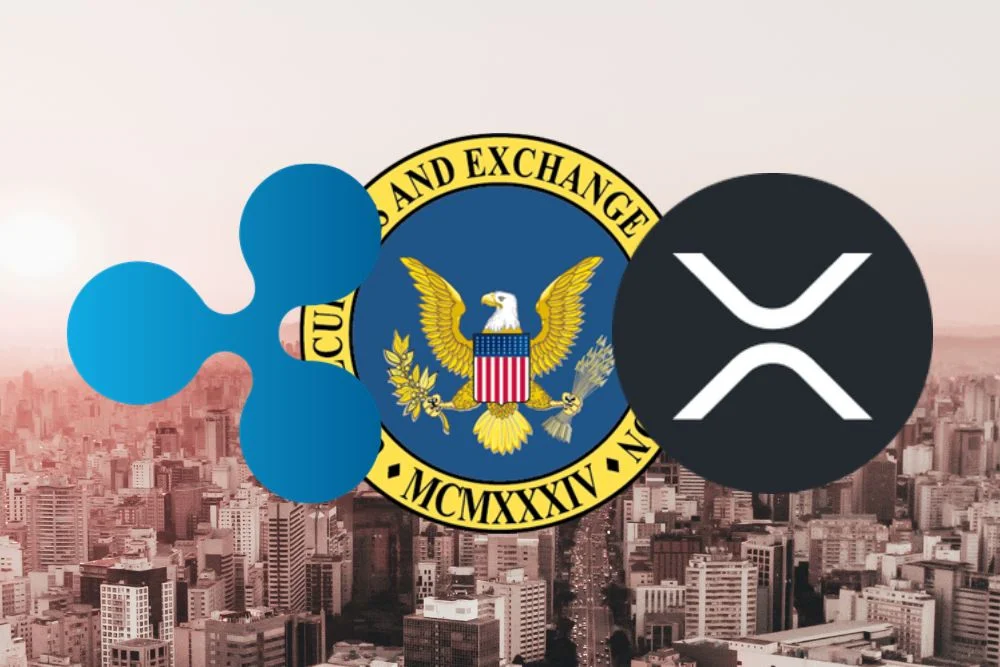In the Ripple vs. SEC case, the regulatory agency levied a staggering $480 million charge against the cryptocurrency payments company.

Amid Ripple’s legal dispute with the SEC, Pro-XRP lawyer Bill Morgan uncovered a potential obstacle that may soon befall the company.
Morgan voiced concerns regarding the SEC’s position in a recent statement, implying that it might have adverse consequences for Ripple’s future.
Step Forward In Ripple vs. SEC Case
Morgan cited the SEC’s allegations regarding Ripple’s institutional investor-only selective discounts, which allegedly caused damage to those who were not granted access to them.
Recent information from the regulatory agency regarding the Ripple vs. SEC case indicates that this damage totaled a substantial $480 million.
Morgan thus advised Ripple that this action might present a “problem” in the forthcoming proceedings.
Indeed, the lawyer maintained that a meticulous examination is necessary for the underlying assumptions that support this figure.
Morgan emphasized the need for more thorough scrutiny of the SEC’s claims by stating, “The evidence of causation for this alleged harm seems thin.”
Moreover, the SEC argued that the XRP’s market price was impacted negatively by these discounted sales.
In light of the Ripple vs. SEC case, this may subject the organization to legal repercussions from dissatisfied institutional investors.
Morgan emphasized the gravity of the situation by stating, “The SEC’s assertions in the brief and the evidence upon which those assertions are based must at minimum make possible the risk of legal action against Ripple.”
Additionally, Morgan expressed concerns regarding the potential damages to Ripple’s standing among institutional investors.
His concern was that disclosing the existence of selective discounts might damage the reputation of the organization.
Furthermore, the pricing of these discounts would have been required to be disclosed had the sales been registered, as suggested by the SEC’s categorization of these transactions as investment contracts.
This would consequently cast doubt on Ripple’s adherence to regulatory requirements.
Morgan disclosed his intention to further examine the matter before explicitly addressing the concerns raised in the SEC’s arguments, all the while alluding to their lack of soundness.
Fred Rispoli Remarks
Fred Rispoli, another XRP lawyer, has caused a considerable uproar within the cryptocurrency community with his analysis of the most recent development in the Ripple-SEC legal dispute.
Rispoli emphasized the difficulty the SEC faced in substantiating tangible investor injury, a critical element that had the potential to influence the court’s verdict.
Furthermore, the claims made by the SEC were rejected by Ripple and its CLO Stuart Alderoty, highlighting the contentious nature of the proceedings.
Nevertheless, he voiced apprehensions regarding the disclosures on purportedly substantial reductions in XRP prices, a development that might have undermined investor trust and played a role in the virtual currency’s depreciation.
Concerning the extent of these discounts, the anonymous figures on page 18 of the motion provide an indication.
This prompts inquiries regarding the potential effects on institutional purchasers such as GSR.
The SEC asserts that Ripple’s post-complaint and post-summary judgment XRP sales constitute the company’s principal source of revenue. Rispoli’s analysis further examines these sales.
Notwithstanding this claim, the ongoing involvement of Ripple with institutional investors indicates the company’s ability to withstand legal unrest.
Since it will ascertain the legality of Ripple’s On-Demand Liquidity (ODL) practices, the motion’s significance transcends monetary concerns.
The stakes have never been higher thanks to Ripple’s XRP holdings exceeding prior estimates by 45.77 billion.
Petition of the SEC to Judge Torres
The agency has apprised the federal court, in the most recent brief in the Ripple vs. SEC case, of Ripple’s violations of securities laws.
Petitioning the judge to sanction Ripple with a final judgment.
However, permanent injunctions, disgorgement with prejudgment interest, and civil penalties totaling approximately $2 billion are among the measures that have been requested.
Critics from Ripple executives and the cryptocurrency community have expressed disapproval towards the SEC due to their perception that the remedies-related brief and other related documents contain unfounded claims.
They contended that Ripple should be held accountable for its alleged lack of fraudulent activity or recklessness.
It suggests the implementation of a plan to impede the current bull market.
The SEC filed with the court a redacted public version of its brief concerning remedies.
Seizure of the Securities Act of 1933 violations are the primary contentions of the case.
Illegitimate XRP offerings in institutional transactions constitute these infractions.
Significantly, despite the ongoing litigation, the SEC refrains from making any fraudulent allegations and instead focuses on Ripple’s expansion.
The SEC requests validation of an order requiring Ripple to reimburse $876,308,712 in its appeal to Judge Analisa Torres.
In addition, it imposes a civil penalty of $876,308,712 and demands $198,150,940 in prejudgment interest.
According to the SEC, Ripple’s XRP sales after the complaint primarily targeted institutional investors, and these transactions have allegedly had a negative impact on such investors.
Ongoing violations of securities laws, misrepresentation of court decisions, and deliberate evasion of compliance were additional charges levied against Ripple by the SEC.
